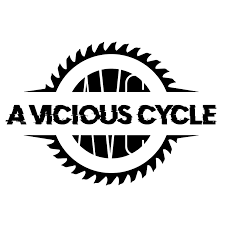When I hear him walk down the stairs, my hairs stand on edge preparing for our next battle. I find myself not even liking my son. I walk around feeling like such a failure as a parent. I've lost all hope.
Blocked care happens involuntarily to parents when they experience prolonged stress and subsequently lose their ability to feel loving towards and compassion for their children. Blocked care within a parent often triggers blocked trust in a child, and vice-versa. If your child is experiencing blocked trust, their rejection and defiance aimed at you eventually can wear you down. Your brain may automatically move into protective mode and will create those tough feelings described above. Your withdrawal from your child can be a natural reaction to their lack of reciprocity, their need to push you away, and your child’s need to put their own walls up. It becomes a vicious cycle.
Shame
Problem is that most of us do not talk about these feelings connected to blocked care. Feeling as if you do not even like your kid is a big taboo in our culture. The guilt surrounding that dislike, combined with the internal dialogue of being a bad parent, creates a messy storm of stress and despair. The first step to remedy this muck, is to start talking about it. The shame surrounding blocked care is huge and the only way to diffuse this is to have open dialogues about how normal blocked care is within the adoption community. Blocked care actually is universal to all parents. Parents are afraid to speak up for fear of being judged. Admitting you are not liking your child, that your parenting feels lousy, that you are just plain burned-out is the first step in healing.
SIGNS of Blocked Care*
- Stuck in coping with child’s behaviors and forgets this behavior is a deeper symptom of something else
- Feeling defensive and avoids further rejection from child at all costs
- Burned-out and exhausted
- Irritable
- Self-Isolating
- Cynical about suggestions for improvements
- Crises in faith or personal values
- Loss of compassion towards child, which leads to shame
- Loss of pleasure from parenting
Four Types of Blocked Care**
- Chronic: This means you are experiencing blocked care all the time. If you had a tough childhood, your child’s blocked trust is more likely to trigger you. Your brain moves into protection mode much quicker. Just being aware of this in yourself can help.
- Acute: If you are experiencing a single traumatic event such as a death in the family or a medical issue, you are more susceptible to fall into blocked care. Managing your own personal crises obviously makes it harder to stay connected to your child and find pleasure in parenting.
- Child Specific: Certain kids just trigger us more then others. It just is truth. If your child is consistently rejecting of you, that can make it truly hard to bond with and feel love for them. This scenario can occur with children who are stuck in blocked trust. It truly is difficult to feel like a good parent to someone who won’t allow you close to them in any way.
- Stage specific: Adolescence is a prime breeding ground for blocked care. Even though it is our child’s developmental task to separate from us when they are teens, it can create resentment and a disconnect. Teenagers can be mean and prickly, and as a parent, the only way through this stage is to QTIP. (Quit Taking It Personally.)
Hope

If you read these Newsletters regularly, you know hope is always around the corner. Keep reading for an array of ideas on how to help you if you are experiencing blocked care. So start talking about it, lose the shame, extinguish the guilt, and read the next article to move through this temporary yet grueling period in your parenting journey. Remember, you are not alone! And things will get better!
*Adapted from The Nine Sign of Blocked Care by Corkum & Qualls
**Brain Based Parenting, Hughes & Baylin






